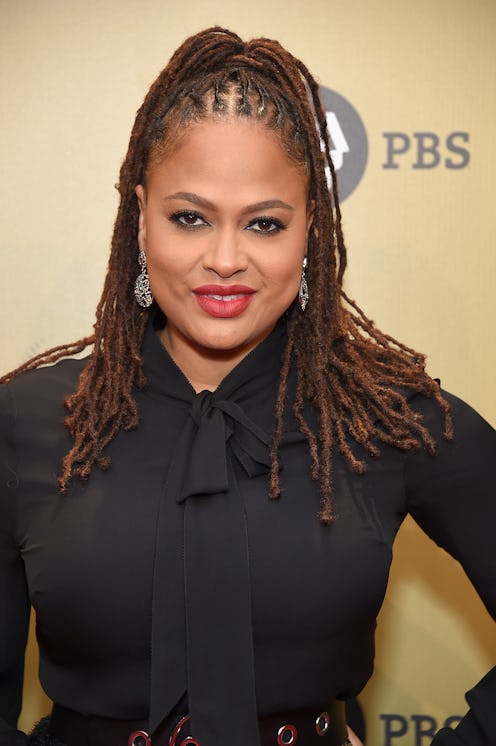
The saying "empowered women empower women" is best exemplified in Ava DuVernay's reason for not directing more episodes of Queen Sugar. In a recent tweet, when asked by a fan, the screenwriter revealed that she will not be directing episodes of the OWN series "for a while" in an attempt to make space for other women who wish to step into the role. And her stance on creating room for more female directors is a breath of fresh air as inequality continues to persist in the male-dominated film industry.
The 44-year-old filmmaker has long been vocal about only hiring women to direct the drama that she co-produces with Oprah Winfrey. The initiative is something that both women have been committed to, making it their mission to seek out undiscovered female talent for the seasons of the project, according to Refinery 29. And bringing diversity to Hollywood seems to be DuVernay's driving force in general since she earned recognition as the first African American woman to win the Best Director Award at the 2012 Sundance Film Festival for her film Middle of Nowhere.
With her platform vastly expanding, DuVernay has begun implementing her own plan to shine the light on other female directors who've found it difficult breaking into the field primarily monopolized by men. In 2016, the Selma director told People, "If Game of Thrones can have all men for the last three seasons, Queen Sugar can have all women and show what a fantastic show can be made from our hands and our minds.”
Her point is extremely valid, as women continue to be passed over in many aspects of filmmaking. In 2017, the Center for the Study of Women in Television & Film at San Diego State University released a study that revealed that the number of female directors has declined from 2015, with only seven percent of the 250 top grossing films of 2016 being directed by women. This was a two percent decline from the previous year. The Center also found that women only made up 26 percent of television creators in roles like directing, writing, producing, and more; this is particularly bad because the same study also found that shows with at least one female creator had "higher percentages of female characters overall." Essentially, more women behind the camera guarantee more women, complexly written, in front of it.
So, yes, DuVernay's plan for creating parity, not just in terms of race but gender as well, is an attitude that others in Hollywood must adapt in order to repair an industry struggling in diversity. And although her efforts may seem to only scratch the surface of an overwhelmingly large issue, the filmmaker's actions are certainly an enormous step in the right direction in terms of equal representation for women in media.
In the few short years since Ava DuVernay has gained recognition in the entertainment world, she's quickly become a symbol of optimism and hope for the many women that she continues to uplift and inspire. Her fortitude and and commitment to providing opportunities for others proves that anything is possible as long as we continue to have each other's backs.